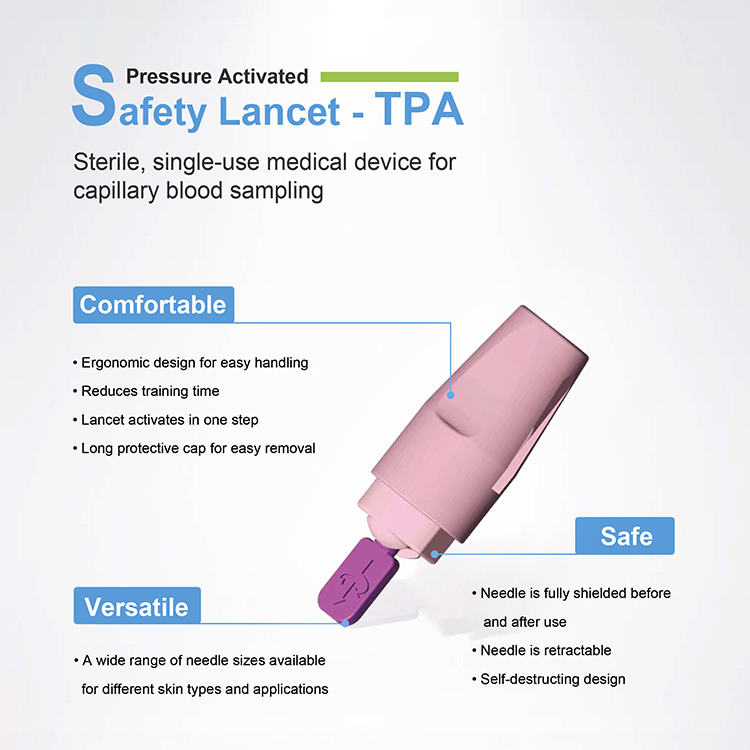Nov . 25, 2024 05:28 Back to list
Suppliers for Stool Occult Blood Testing Products and Services
Understanding Stool Occult Blood Tests Suppliers and Their Role
Stool occult blood tests (FOBT) are crucial in the early detection of gastrointestinal (GI) issues, particularly colorectal cancer. This non-invasive test detects hidden blood in the stool, which can be an early sign of serious health problems. The reliability of these tests hinges not only on their scientific basis but also on the suppliers that provide the necessary testing kits and support. This article provides an overview of FOBT, its significance, and the role of suppliers in ensuring accurate and efficient testing.
What is a Stool Occult Blood Test?
The stool occult blood test is designed to check for blood that isn't visible to the naked eye. In many cases, blood in the stool can indicate conditions such as polyps, tumors, or gastrointestinal bleeding. The test is typically recommended for individuals over the age of 50 or those with a family history of GI cancers. There are two primary types of FOBT the guaiac-based test (gFOBT) and the immunochemical test (FIT). Both methods have their advantages, but FIT tends to be more specific and easier for patients to use, as it doesn’t require dietary restrictions prior to the test.
The Importance of FOBT
Early detection through stool occult blood testing can significantly improve the prognosis for individuals diagnosed with colorectal cancer or other GI disorders. According to the American Cancer Society, regular screening can reduce the mortality rate from colorectal cancer significantly. Thus, promoting awareness about FOBT and ensuring that it is accessible to patients is essential for public health.
The Role of Suppliers
Suppliers play a critical role in the overall effectiveness of stool occult blood tests. They provide the necessary testing kits that healthcare providers use to administer these tests. Understanding the responsibilities and challenges faced by suppliers is essential for ensuring the reliability of these tests.
stool occult blood test supplier

1. Quality Assurance Suppliers must adhere to stringent quality control measures to ensure that the testing kits are accurate and reliable. This includes regular testing and validation of their products to meet regulatory standards such as those set by the Food and Drug Administration (FDA). High-quality tests lead to accurate results, which in turn fosters trust between healthcare providers and patients.
2. Education and Training Suppliers also have a responsibility to educate healthcare providers on the proper use of FOBT kits. This involves training staff on sample collection, handling, and interpreting results. Providing clear guidelines and resources helps reduce errors and ensures that patients receive the correct outcomes based on their tests.
3. Innovative Solutions With advances in technology, suppliers are continuously working to improve FOBT methodologies. This includes developing more sensitive tests that can detect lower levels of blood in the stool and integrating digital solutions for result tracking and patient management. Such innovations help streamline the screening process and improve patient compliance rates.
4. Distribution and Accessibility Another critical aspect of suppliers' roles is ensuring that FOBT kits are widely available. Accessibility is crucial in promoting regular testing, especially in underserved communities that may lack healthcare resources. Suppliers must establish efficient distribution channels and partnerships with healthcare facilities to ensure that testing kits reach those who need them most.
5. Research and Development Suppliers also invest in research to enhance the effectiveness of existing tests and explore new screening methods. By collaborating with medical professionals and researchers, suppliers can contribute to the development of more accurate, faster, and cost-effective screening options that will ultimately benefit patients.
Conclusion
The stool occult blood test is a vital tool in the fight against colorectal cancer and other GI diseases. Suppliers of FOBT kits play an indispensable role in ensuring the quality, accessibility, and effectiveness of these tests. By upholding high standards, providing education, and fostering innovation, suppliers help bridge the gap between healthcare providers and patients, leading to improved early detection rates and, ultimately, saving lives. As awareness of the importance of regular screening grows, the role of suppliers in this critical healthcare process will become even more pivotal.
-
Reliable Early Pregnancy Test Kit Supplier - Multi Plastic Cassette Options
NewsJul.30,2025
-
Transferrin Rapid Test Cassette – Reliable Tumor Marker Detection
NewsJul.29,2025
-
Accurate Follicle Stimulating Hormone Test Kit | Rapid Reliable Results
NewsJul.29,2025
-
High Accuracy LH Ovulation Test Kit - Digital Results & Wholesale Options
NewsJul.29,2025
-
HbsAg Blood Rapid Test Kit for Fast & Accurate Hepatitis B Detection
NewsJul.28,2025
-
Sterile Urine Cup for Safe & Easy Collection | High-Quality Specimen Cups
NewsJul.28,2025

